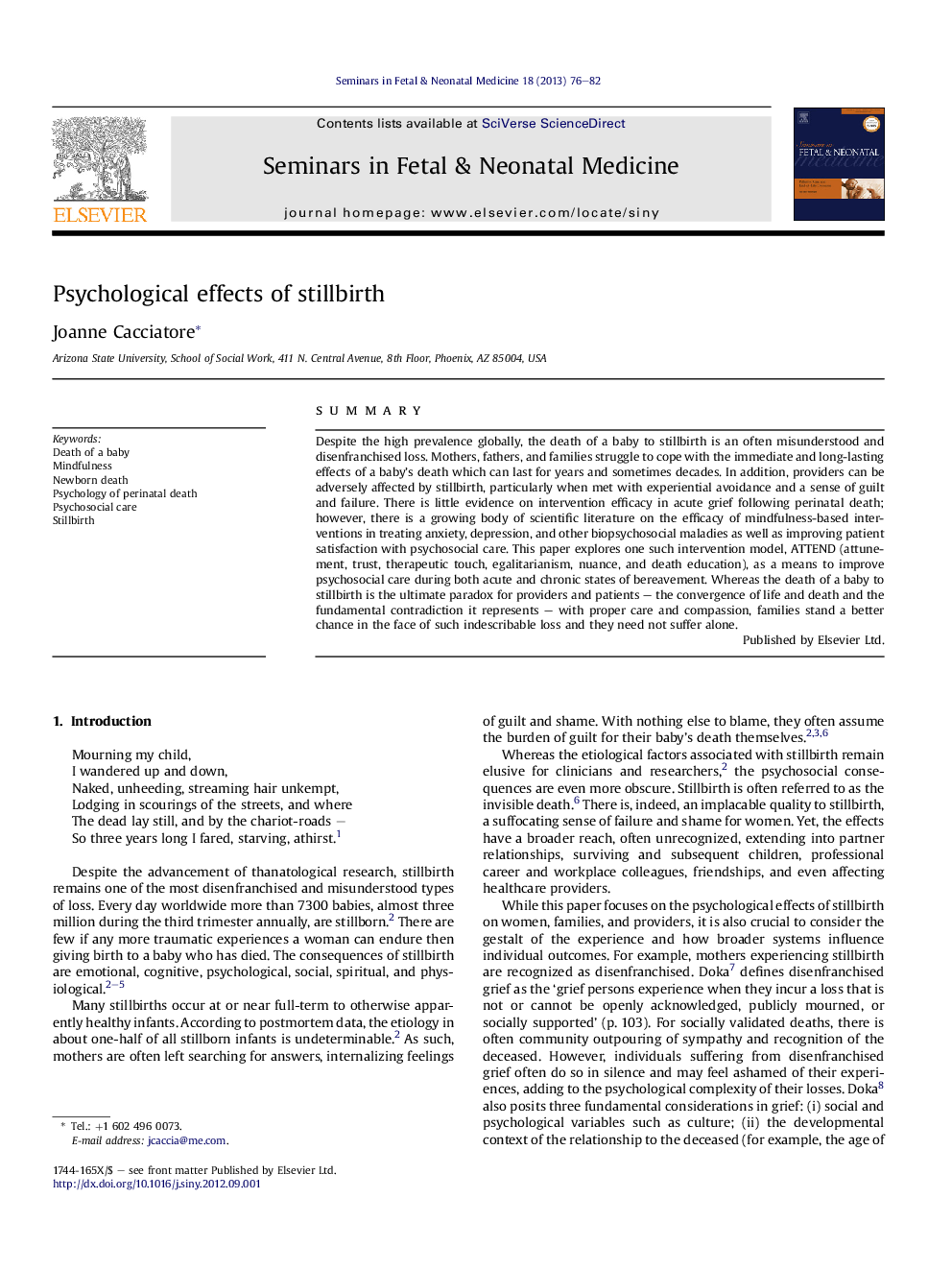| Article ID | Journal | Published Year | Pages | File Type |
|---|---|---|---|---|
| 3974066 | Seminars in Fetal and Neonatal Medicine | 2013 | 7 Pages |
SummaryDespite the high prevalence globally, the death of a baby to stillbirth is an often misunderstood and disenfranchised loss. Mothers, fathers, and families struggle to cope with the immediate and long-lasting effects of a baby's death which can last for years and sometimes decades. In addition, providers can be adversely affected by stillbirth, particularly when met with experiential avoidance and a sense of guilt and failure. There is little evidence on intervention efficacy in acute grief following perinatal death; however, there is a growing body of scientific literature on the efficacy of mindfulness-based interventions in treating anxiety, depression, and other biopsychosocial maladies as well as improving patient satisfaction with psychosocial care. This paper explores one such intervention model, ATTEND (attunement, trust, therapeutic touch, egalitarianism, nuance, and death education), as a means to improve psychosocial care during both acute and chronic states of bereavement. Whereas the death of a baby to stillbirth is the ultimate paradox for providers and patients – the convergence of life and death and the fundamental contradiction it represents – with proper care and compassion, families stand a better chance in the face of such indescribable loss and they need not suffer alone.
